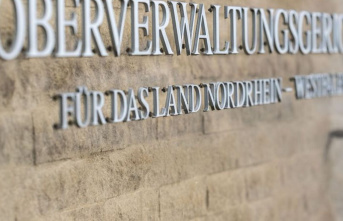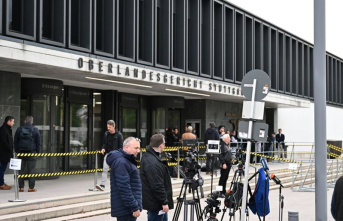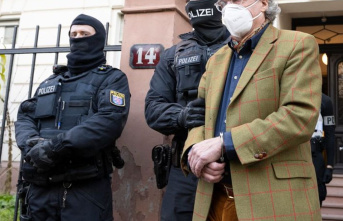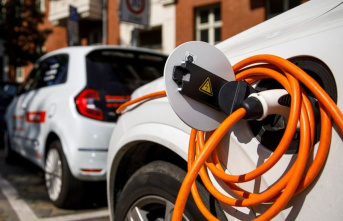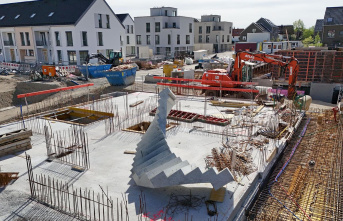The Democrat presses Republicans to spend more federal panademic relief aid immediately. Wolf hopes to secure a large boost in state aid to his legacy of public schools.
The state's bank accounts are full of cash. Wolf, who is constitutionally bound to resign next January, boasts that he is the only governor since Dick Thornburgh, 1987, to leave a cash surplus for his successor.
Republican lawmakers are rebuking Wolf's bullish spending plans and those of his fellow Democrats in Congress.
Wolf has had large parts of his agenda blocked year after year by the large Republican legislative majority. These include billions in tax increases Wolf claimed were necessary to support the state's finances, and to restructure a school funding system that is unfairly disadvantageing the poorest schools.
Wolf's two-year-old effort to deal with the pandemic, its aftermath, and its aftermath have sapped Wolf's agenda. Federal aid in large amounts and federal subsidies have helped to tame the state's deep deficits temporarily.
Wolf has not released details about his budget plan for 2022-23, which will begin July 1, but he made it clear that funding public schools is his number one priority.
These are five things you should be aware of when Tuesday's governor's plan goes public:
___
SPENDING
Wolf will almost certainly propose an operational budget that exceeds the $38.6 million approved plan for state funds this year. The state will need to fill the $4 billion gap in federal pandemic assistance that was covering some Medicaid bills this fiscal year. Wolf also wants more aid for schools, as Pennsylvania's rapidly aging population is increasing Medicaid costs.
Good news is that tax collections have surpassed expectations due to strong spending by consumers and a projected multibillion-dollar surplus. This is in addition to $2.2 billion that President Joe Biden left behind from the American Rescue Plan and $2.9 billion in state budget reserves.
Wolf provided a preview of his budget outlook in Pittsburgh last month. He said that the state's financial stability was due to smart investments and it must "seize this moment" while it is strong.
Wolf stated that Pennsylvania must continue to make generations of investments that will help it on the path to prosperity for many years to come. Wolf said, "I'm going to tell you in my budget address in two weeks that we need to pay our bills."
Wolf will call these bills "fully funding" public school under the state's current funding formula. Wolf asked for $1.3 billion more or a 20% increase to make it happen last year. Wolf settled for $300m, which is still a significant increase.
The other priorities could be to increase reimbursements for direct-care workers who provide services to the elderly and disabled, under Medicaid. However, they are hard to find and difficult keep. Given the failure of the Pittsburgh bridge last month, he might seek to shift fuel tax dollars from state police budget into highway and bridge construction.
Wolf and Democratic legislators also desire to spend $1.7B of federal aid on workers and the health care system, as well as a one-time property subsidy for renters and homeowners with lower incomes.
___
TAXES
Wolf seems unlikely to propose any increase in state income or sales taxes due to the state's large cash cushion. These are the two main sources for income of the state.
He may once again push for a production tax on Marcellus Shale's natural gas reservoir. He has done this every year, but was blocked by his industry allies in Congress.
Wolf and Republican legislators may attempt to reach a deal on another governor's long-held goals: lowering the corporate net income tax rate of 9.99%, , which is among the nation's highest .
___
EDUCATION
Wolf made it his mission in 2015 to eliminate funding gaps between poor and wealthy districts, and to bring the state's share to around 50% of public school costs. Although his most ambitious plans failed, he still increased spending on public schools, including special education, by approximately $2 billion or 30%.
He'll probably have another big request this year.
Top Democratic lawmakers, supported by teachers' union allies, have proposed a $3.75 Billion request. This includes $1 billion in federal aid, primarily for school building improvements.
When asked if the governor supported it, Sen. Vincent Hughes (D-Philadelphia) said Wolf expressed a "very strong desire in what it's that we offer here."
___
REPUBLICANS
Republican majorities in both the House and Senate remain firm in their belief that federal pandemic assistance and state reserves should be used conservatively to prevent deficits.
They claim that the state's temporary good fortune and long-term fiscal situation are worrisome.
"The governor's and Democratic leaders' proposals were made in a fiscal fantasy world where future fiscal years are apparently not a concern," House Republican leaders stated in a statement.
___
HEADWINDS
Pennsylvania is currently in a short sweet spot for tax collection for a state which has suffered from stubborn deficits more than a decade since the recession.
These are some of the most difficult challenges.
Pennsylvania is one of the slowest-growing states in America. Another reason is that the retirement age population in Pennsylvania explodes while the working-age population, which must pay for expensive healthcare bills for the elderly, shrinks.
The federal government also owes $900 million in unemployment compensation to it, which was left over from the pandemic.


